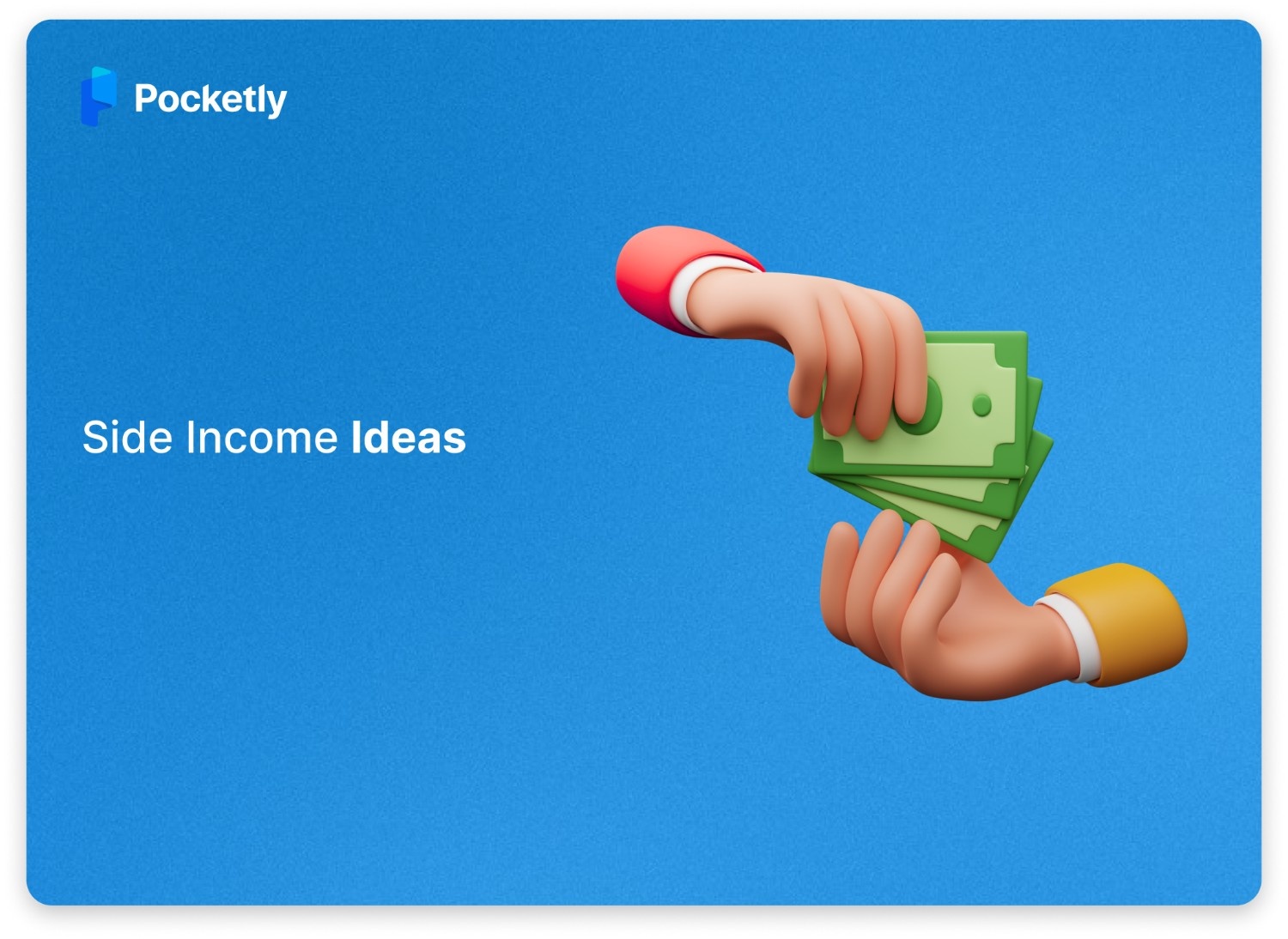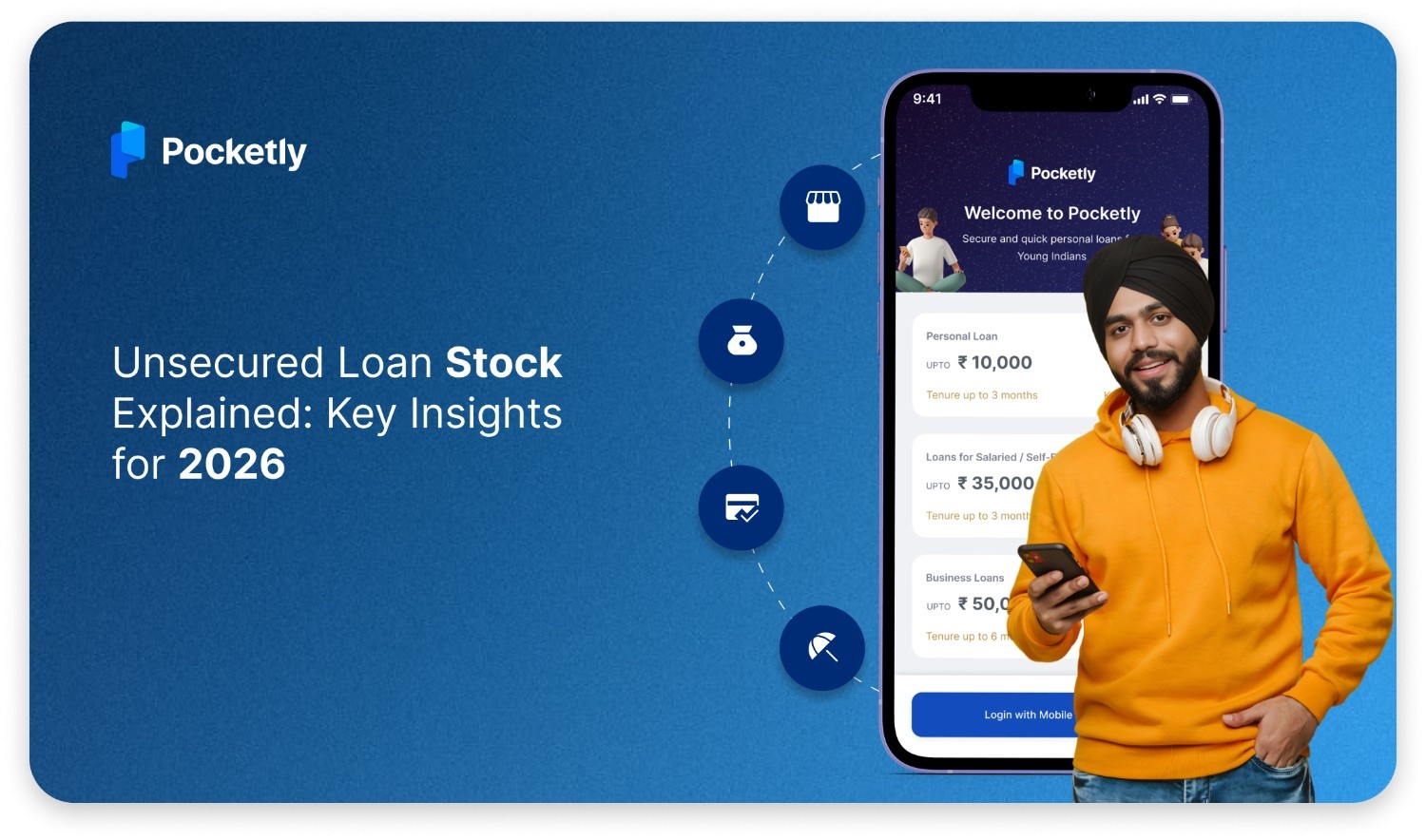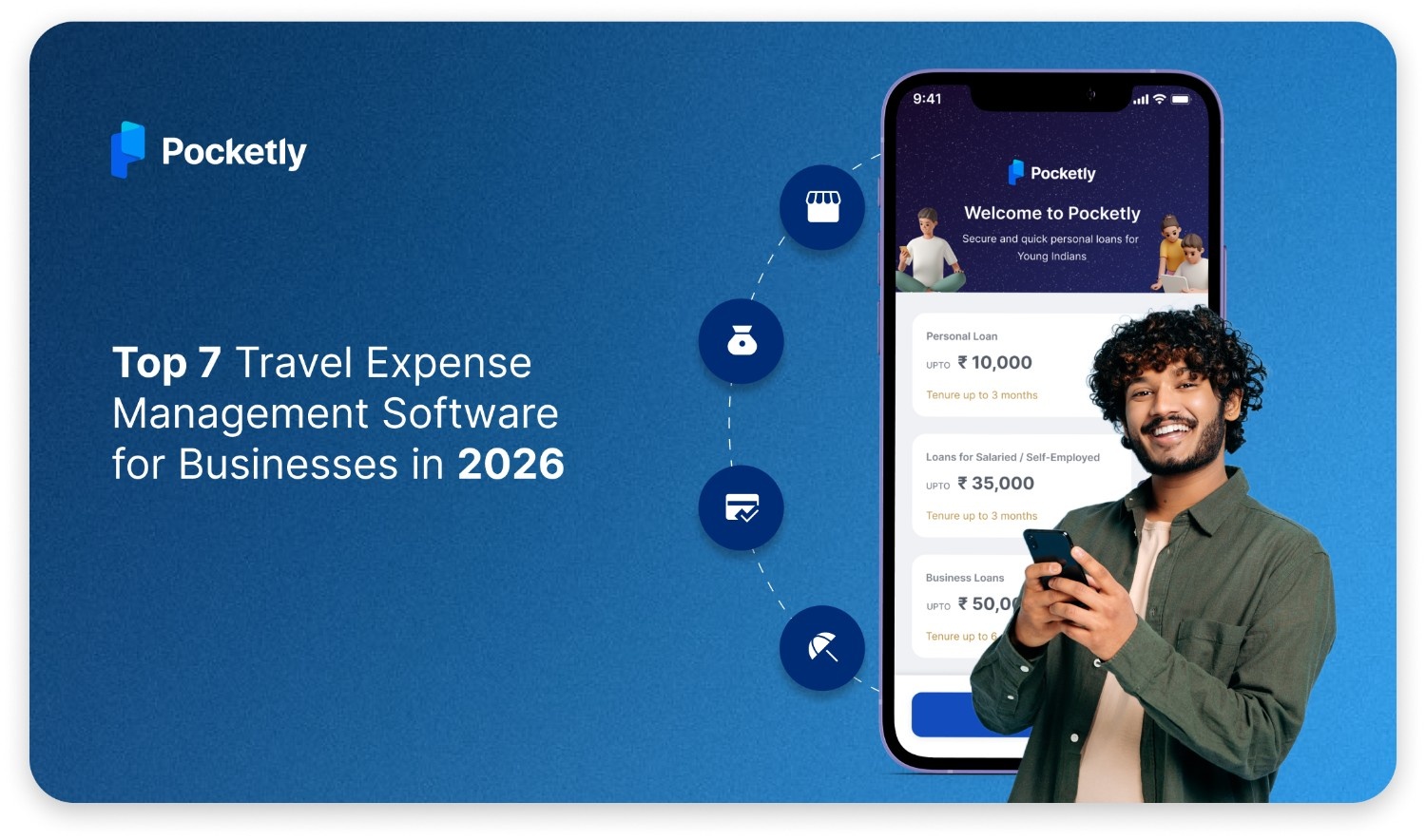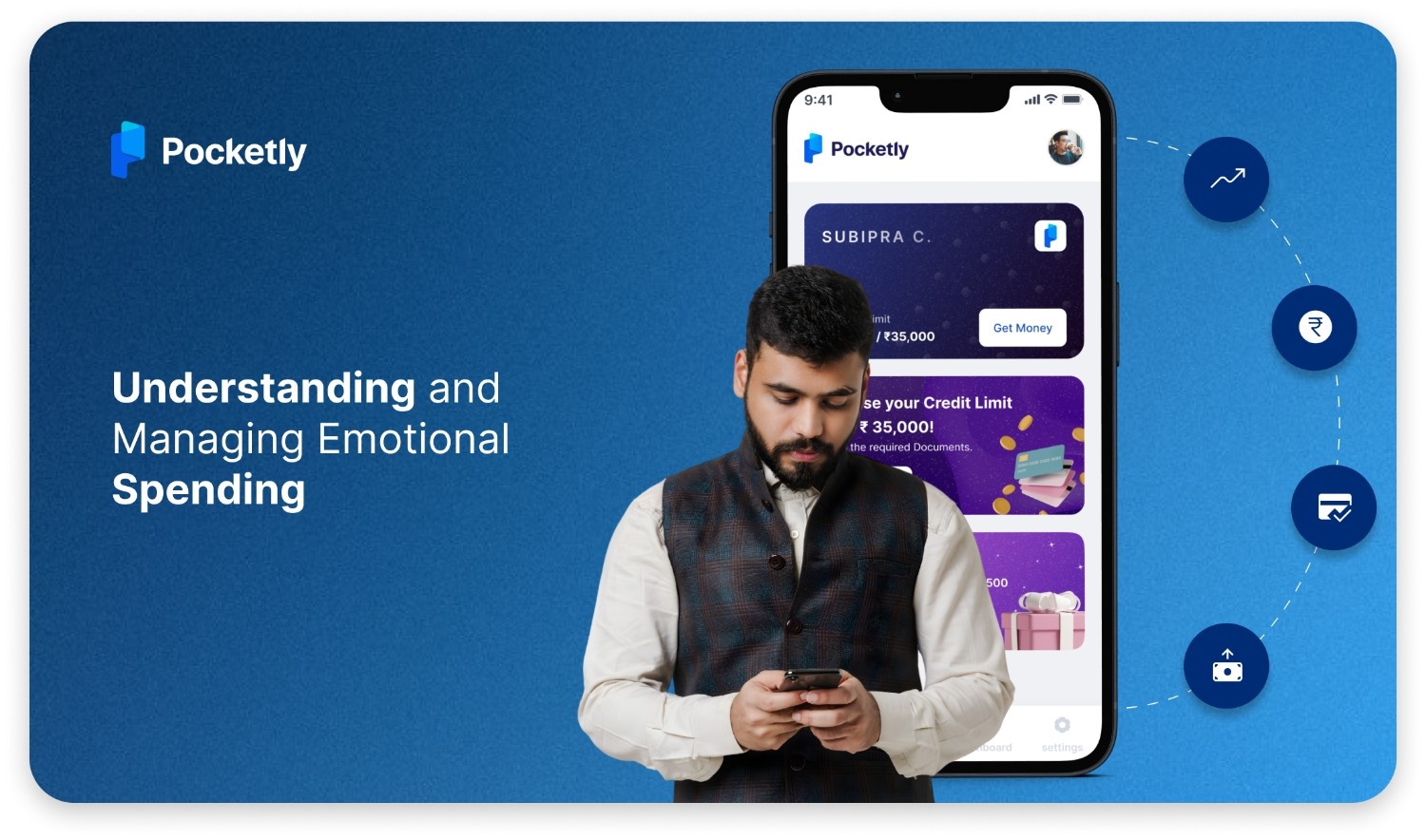Imagine you’re in a situation where an urgent expense pops up—maybe it’s a medical emergency, a sudden home repair, or even a trip you've been planning that needs to be paid for right away. You check your bank balance, and it’s not enough to cover the cost. To make things more stressful, your credit score isn't exactly in the best shape. Getting a loan seems impossible, right?
Well, it doesn’t have to be. Even with a low CIBIL score, there are ways to secure a personal loan to handle those unexpected expenses. Understanding your CIBIL score is crucial when it comes to applying for personal loans.
This article dives into what a CIBIL score is, how it’s calculated, and the impact it has on your loan applications. You'll also discover various strategies to get a personal loan even with a low CIBIL score, as well as tips to improve your score systematically.
Let’s break down how you can get a loan when your credit score is less than ideal.
Understanding CIBIL Score
When we talk about getting a personal loan, the first term that usually pops up is the CIBIL score.
The credit bureaus provide a CIBIL score as a three-digit numerical representation of an individual's creditworthiness, ranging from 300 to 900. It serves as a snapshot of your credit history and helps lenders gauge the risk of extending credit to you.
Let's understand how this all works and why it matters.
1. Definition and Calculation
Your CIBIL score is calculated based on several factors, such as your credit history, loan repayments, credit utilization, and the length of your credit history.
- Credit History: How well you’ve paid off previous loans and credit card bills.
- Credit Utilization: The percentage of your available credit that you're using.
- Loan Repayments: Timely repayments boost your score; missed payments harm it.
- Credit Mix: Having a variety of credit types (credit cards, home loans, etc.) positively impacts your score.
2. Why Your CIBIL Score Matters for Loans
Your CIBIL score directly impacts several aspects of your loan application process:
- Loan Approval : A higher CIBIL score tells lenders that you are a low-risk borrower, enhancing your chances of loan approval.
- Interest Rates : Those with higher scores often secure loans at more favorable interest rates.
- Credit Card Eligibility : A good CIBIL score can qualify you for credit cards with better rewards or features.
- Negotiating Leverage :
- Employment Screening : Some employers might check your credit score as part of their background verification process, particularly for roles involving financial responsibilities.
3. Score Ranges from 300 to 900
Understanding the score ranges can help you gauge where you stand:
- Poor (300-550) : This range indicates significant credit issues. Securing loans or credit cards could be very challenging, and if approved, the interest rates would be high.
- Fair (550-650) : This suggests moderate credit issues. You might still get approved for loans but likely at less favorable terms.
- Good (700-749) : Scores in this range denote responsible credit behavior and generally qualify for competitive loan terms.
- Excellent (750-900) : This range is the gold standard, making individuals eligible for the best loan offers and lowest interest rates.
4. Impact of Low CIBIL Score on Loan Approval
A low CIBIL score can be a significant roadblock when trying to obtain a personal loan:
- Loan Approval Difficulty : Applying for loans with a low score often leads to either outright rejection or approval at unfavorable terms.
- Higher Interest Rates : If you do get approved, expect considerably higher interest rates compared to those with better scores.
- Loan Application Rejection : Generally, scores falling below 600 are prone to rejection from traditional banks and financial institutions.
- Credit Limit Restrictions : A low CIBIL score might also mean lower credit limits on credit cards and other financial products, restricting your borrowing capacity.
Understanding how your CIBIL score works and how it affects your loan eligibility, you can better navigate your options, even if your score isn’t perfect.
How to Get a Personal Loan with a Low CIBIL Score
It’s possible to get a personal loan even with a low CIBIL score, but you may need to approach things differently. Here are a few strategies:
1. Using Banking Relationships
If you've been a long-term customer with a solid banking history, your chances improve significantly. Banks may offer you more flexible terms if they trust your overall financial health and stability. Consistent transaction history and other relationships like fixed deposits or savings accounts can work in your favor.
2. Essential Eligibility Proofs and Documentation
Don't underestimate the power of paperwork. When applying for a loan, ensure you have comprehensive eligibility proofs and documentation. This might include:
- Income Proof: Salary slips for at least three months or other income documents.
- Employment Proof: Stable employment records in a credible organization.
- Financial Stability: High income and a stable cash reserve can sway the odds in your favor.
- Credit History: A detailed explanation of past credit issues and the steps you've taken to rectify them can also help.
These documents can paint a bigger, more positive picture for the bank, showing that you're a low-risk borrower despite a low CIBIL score.
If you’re looking to dive deeper into the eligibility requirements, especially for self-employed individuals without income proof or salary slips, check out our detailed guide on Getting a Personal Loan for Self Employed Without Income Proof or Salary Slip.
3. Loan from Non-Banking Financial Companies (NBFCs)
Non-Banking Financial Companies (NBFCs) tend to be more flexible than traditional banks. They often consider lending to individuals with lower CIBIL scores. However, this leniency comes at a cost of higher interest rates compared to traditional banks. This is due to the increased risk they take on by lending to individuals with lower credit scores.
Here’s what you need to know:
- Higher Interest Rates and Shorter Repayment Periods : NBFCs often offset the risk of lending to low-CIBIL score individuals by charging higher interest rates and offering shorter repayment periods. It’s crucial to perform a cost-benefit analysis to understand whether you can manage such terms. Make sure you account for all fees and interest to calculate the total cost of borrowing.
4. Secured Loans and Collateral
Another viable option involves secured loans, where you provide collateral to back the loan. This can improve your chances of approval even with a low CIBIL score. Valuable assets like vehicles, property, or other substantial assets can be used as collateral.
However, the risk here is losing these assets if you fail to repay the loan on time.
Using collateral can lead to better loan terms, like lower interest rates and longer repayment periods. However, it's important to consider the risks. If you can't repay the loan, you could lose the asset you've pledged, which could seriously impact your financial situation.
If you want to learn more about the Cibil report, how it works and how it can help you, read our guide on Understanding DBT, STD, LSS & DPD in CIBIL Report.
Boosting Loan Approval Chances
There are several strategies you can implement to boost your chances of loan approval. If you have a low CIBIL score and are concerned about securing a personal loan, don't worry. Demonstrating a stable income and using a few smart strategies can increase your chances of approval.
1. Maintain Stable Income
One of the best ways to improve your loan approval prospects is by demonstrating a stable income. Lenders are more likely to approve a loan if they feel confident you can make the monthly payments. Here’s how you can use your income to your advantage:
- Income Proof: Submit salary slips for the past three months to showcase a steady income stream. This evidence can alleviate concerns about your repayment ability, especially if your CIBIL score is low.
- Highlighting Additional Income: If you recently received a salary increment or have another source of revenue (such as freelance work or rental income), make sure to highlight these in your application. Lenders are more likely to favor candidates with multiple income streams.
- Employment Consistency: Being consistently employed in the same job for a lengthy period can also be beneficial. Lenders view stable job history as a sign of a steady and reliable income source.
2. Reducing Debt-to-Income Ratio
Your debt-to-income (DTI) ratio plays a crucial role in a lender’s decision. A high DTI ratio indicates that a significant portion of your income already goes towards debt payments, making lenders wary of extending additional credit. Here’s how to manage it:
- Pay Off High-Interest Debts: Prioritize settling high-interest debts, such as credit card balances, to reduce your overall debt burden.
- Manage Expenses: Aim to save at least 40% of your monthly income after covering all essential costs. Demonstrating that you can live within your means will help reassure lenders.
- Avoid New Credit Inquiries: Refrain from applying for new credit products shortly before a loan application as this can temporarily lower your credit score and increase your DTI ratio.
3. Using a Co-Applicant
Including a co-applicant or guarantor in your loan application can significantly boost your approval chances:
- Higher Credit Score Co-Applicant: If your co-applicant has a better CIBIL score than you, their higher creditworthiness can positively impact the entire application. This can lead to better loan terms and possibly a lower interest rate.
- Shared Responsibility: Having a co-applicant means both parties share the loan responsibility, which can give lenders greater confidence in your repayment capability.
4. Providing Additional Documentation
Sometimes, lenders require more than just basic details like income proof and credit score. Here’s how you can present additional documents to strengthen your case:
- Additional Income Proof: If you've recently received a salary hike, make sure to provide your updated salary slips or employment letter to the lender.
- Extra Sources of Income: Show any rental income, side hustle earnings, or freelance work with relevant bank statements or payment receipts.
- Increased Creditworthiness: Providing this extra income documentation can reassure lenders of your ability to repay the loan, even if your CIBIL score is lower.
These extra steps can give you the boost you need to get loan approval!.
Tips to Improve CIBIL Score
If you're struggling with a low CIBIL score, there are steps you can take to improve it. Improving your CIBIL score won’t just help you with future loans but also open up better interest rates and terms:
1. Checking Credit Report for Errors
Start by regularly reviewing your credit report. Mistakes on your report, such as incorrect open accounts or unauthorized inquiries, can significantly drag down your credit score.
Obtain your CIBIL score and credit report, which you can purchase for a nominal fee. Go through the report meticulously, and if you spot any discrepancies, raise a dispute immediately to have them corrected. Correcting these errors can have an immediate positive impact on your score.
2. Timely Payments of Debts
One of the most critical factors in your credit score is the consistency of your payments. Always pay your EMIs and credit card bills on time to avoid late payment fees and a negative impact on your score.
Setting reminders or automatic payments can ensure you never miss a due date. Even if you’re financially strained, paying at least the minimum amount can prevent further damage to your credit score.
3. Reducing Credit Utilization
Your credit utilization ratio—the amount of credit you’ve used compared to your credit limit—should ideally be under 30%. Paying off outstanding balances monthly can help you avoid interest and keep your utilization rate low.
If possible, request a credit limit increase to improve this ratio. Avoid maxing out your cards as it can negatively impact your score.
4. Diversifying Credit
A variety of credit accounts, including both secured and unsecured loans, shows lenders that you can manage different types of credit responsibly. Utilize a mix of credit cards, personal loans, and possibly even an auto loan.
However, avoid overextending yourself by taking out too many loans at once, as this can hurt your score.
5. Avoiding Frequent Credit Applications
Applying for multiple credit cards or loans within a short period can lead to numerous hard inquiries on your report, which can stay there for up to seven years. This makes you appear credit hungry and can negatively impact your score.
Plan your credit needs in advance using tools like an EMI calculator and ensure a reasonable gap between applications.
6. Ensuring Credit Settlements are Updated
If you have settled any loans, it’s essential to follow through with the lender to ensure the settlement is updated in your credit report. Settling loans can be unfavorable for your score, so endeavor to pay off full amounts when possible. Closing settled loans improves your creditworthiness over time.
7. Keeping Old Accounts Active
Old accounts with a good payment history contribute positively to your credit score. Closing these accounts might shorten your credit history and negatively impact your score. Keep these accounts active and in good standing to demonstrate your long-term ability to manage credit.
8. Regular Monitoring of Credit Score
Finally, continually monitor your credit score to track your progress. CIBIL scores are updated every 30-45 days, and improvements can be seen in 3 to 6 months with diligent management of your credit obligations. Regularly checking your score helps you identify areas that still need improvement and gives you a clearer picture of the impact of your efforts.
Also Learn: Understanding the Ideal CIBIL Score Range for Personal Loan Applications
Documents Required for Personal Loan Application
When applying for a personal loan, especially with a low CIBIL score, having all your documents in order is crucial. Lenders need to verify various aspects of your identity, address, income, and other financial information. Here's a detailed list of what you will need:
1. PAN Number
This is a must-have. Your PAN (Permanent Account Number) is vital for tracking your financial transactions and is typically required for all personal loan applications.
2. Aadhaar Linked Mobile Number for KYC
Your mobile number linked to your Aadhaar helps in the Know Your Customer (KYC) process, ensuring that the identity details you provide match the records in government databases. This is often required for a seamless and quicker verification process.
3. Selfie for Verification
Some lenders may ask for a selfie to verify your identity. The rise of online lending platforms has made this more common. A selfie helps confirm that the documents submitted match the individual applying for the loan.
4. Proof of Address
You need to provide documents that confirm your current residential address. Acceptable proofs include:
- Aadhaar
- Passport
- Voter ID
- Driver’s License
- Utility Bills (like electricity, water, or gas bills)
5. Income Proof
Demonstrating your income stability is essential, particularly if your CIBIL score is low. Lenders will commonly ask for:
- Last Three Months' Bank Statements Showing Salary Credits : This helps confirm that you have a steady income, making you a potentially reliable borrower.
- Additional Financial Information : Lenders might also seek other forms of financial verification link bank statements credit history.
- Loan Application Form : You will need to fill in personal and financial information in the form to facilitate the application process.
Keeping your documents ready can improve your loan approval chances by showing lenders that you are prepared and reliable, regardless of a low CIBIL score. It also speeds up the loan application process, helping you get the funds you need more quickly.
Interest Rates and Charges for Loans
When applying for a personal loan with a low CIBIL score, understanding the interest rates and associated charges is crucial. Different lenders offer varying rates and fees, and being aware of these details can help you make a more informed decision.
1. Transparent Fee Structure
A key factor to consider is the transparency of the fees. Transparent fees mean you won’t be surprised by hidden charges or unexpected costs later on. Lenders who are upfront about their processing fees, late payment charges, or prepayment penalties allow you to budget more effectively.
- For example, a lender might charge a processing fee of 2-3% of the loan amount, but with clear communication, you’ll know exactly what to expect from the start.
2. Interest Rate Ranges
Interest rates vary depending on the lender and your credit profile. Generally, borrowers with a low CIBIL score may face higher interest rates, but it’s still possible to find competitive options if you compare lenders.
- For example, rates for borrowers with lower credit scores can start around 12% and go as high as 30% depending on the loan type and lender. By checking these ranges, you can choose a loan that best fits your budget and repayment capabilities.
Staying informed about interest rates and fees, you’ll be better equipped to choose a loan that won’t overwhelm you financially while ensuring you have the funds you need..
Benefits and Drawbacks of Urgent Loans with Low CIBIL Scores
While urgent loans can provide much-needed financial relief, especially for those with low CIBIL scores, it's essential to weigh both the benefits and drawbacks before making a decision. Understanding the pros and cons can help you determine whether these loans are the right choice for your situation.
Benefits of Urgent Loans with Low CIBIL Scores
Access to Funds When You Need Them Most:
- One of the biggest advantages of urgent loans is their ability to provide immediate access to cash during emergencies. Whether it’s an unexpected medical bill or a sudden repair, these loans ensure that you have the funds to cover unforeseen expenses without waiting for traditional bank approval processes, which can take time.
Alternative Lending Options When Traditional Lenders Say No:
- If you have a low CIBIL score, it’s common to face rejection from traditional banks and financial institutions. Urgent loan providers, including peer-to-peer lending platforms and NBFCs, specialize in offering loans to individuals with bad credit. This flexibility opens up opportunities to access funds that would otherwise be unavailable through conventional means.
Opportunity to Rebuild Your Credit with Timely Repayments:
- Taking out an urgent loan and ensuring timely repayment can actually work in your favor if you're looking to rebuild your credit score. Since many alternative lenders report to credit bureaus, consistently paying back your loan on time can improve your credit score over time.
Convenience and Ease of Application:
- With most urgent loans available online, the application process is quick and hassle-free. You can apply from the comfort of your home without having to go through long paperwork or visit a bank. This is especially helpful for those in need of quick financial solutions without the red tape.
Drawbacks of Urgent Loans with Low CIBIL Scores
Higher Interest Rates:
- One of the most significant disadvantages of borrowing with a low CIBIL score is the higher interest rates that come with urgent loans. Lenders consider individuals with bad credit to be high-risk borrowers, so they charge steep interest rates to compensate for the risk.
Shorter Repayment Terms:
- Urgent loans typically come with shorter repayment periods, meaning you'll need to repay the borrowed amount much faster than traditional loans. While this can help you clear the debt sooner, it also places more pressure on your monthly budget.
Risk of Falling Into a Debt Cycle:
- If you're not careful, taking out an urgent loan can lead to a cycle of debt. High-interest rates, combined with short repayment terms, can make it difficult to manage payments. If you’re unable to pay back the loan on time, you may have to take out another loan to cover the first one, leading to a repetitive cycle of borrowing and repayment struggles.
Limited Loan Amounts:
- Depending on the lender and your financial situation, the amount you can borrow might be limited. This means that while you can access funds quickly, it might not be enough to cover all your expenses. In such cases, you may need to look for alternative solutions to supplement the loan amount.
Potential Fees and Charges:
- Many urgent loan providers charge additional fees, such as processing fees, late payment penalties, or prepayment charges. These can add up, further increasing the total cost of the loan. It’s crucial to read the fine print and understand all associated fees before committing to a loan.
Considering both the benefits and drawbacks of urgent loans, you can make a more informed decision based on your needs. It’s important to ensure that you're financially prepared to handle the repayment terms and avoid falling into a debt cycle.
If it still feels like getting an urgent personal loan is too stressful, Check out Pocketly, with quick approvals and flexible repayment options, Pocketly makes it easy and hassle-free. Give it a try today!
How to Secure a Personal Loan with a Low CIBIL Score Using Pocketly?
At Pocketly, we understand that life happens, and sometimes maintaining a high CIBIL score isn’t easy. That's why Pocketly makes it possible for individuals with low credit scores to access personal loans quickly and without the hassle of traditional lending institutions. Here’s how it works:
Easy Application Process
- Pocketly’s application process is designed to be fast and straightforward. You can apply through the Pocketly app, where you’ll fill out basic information and submit the required documents. The entire process is online, saving you the hassle of visiting a bank or filling out mountains of paperwork.
Flexible Loan Amounts
- Even with a low CIBIL score, Pocketly offers flexible loan amounts to cater to your specific needs. Whether you need funds for an emergency, to cover unexpected expenses, or for any personal reason, Pocketly ensures that you can access the cash you need quickly.
Quick Approval and Disbursal
- Pocketly specializes in urgent loans, so once your application is submitted, the approval process happens swiftly—even with a low CIBIL score. After approval, the loan amount is disbursed directly to your bank account, often within minutes.
No Collateral Required
- Unlike traditional loans, Pocketly does not require any collateral. This makes it easier for individuals with a low credit score to qualify for a loan without having to provide assets as security.
Flexible Repayment Options
- Pocketly provides flexible repayment plans designed to suit your financial situation. You can choose a tenure that works best for you, helping to manage repayments in a way that fits your budget.
Rebuilding Your Credit Score
- While Pocketly offers loans to those with low credit scores, timely repayment of these loans can help improve your credit score over time. By borrowing responsibly and making your payments on time, you can gradually rebuild your financial standing for future loan applications.
With Pocketly, getting a personal loan even with a low CIBIL score is simple and efficient.
Conclusion
While urgent loans can provide a lifeline when you’re dealing with financial challenges, it’s essential to carefully weigh the pros and cons before deciding. If you’re managing a low CIBIL score, these loans offer an opportunity to rebuild your credit, but they also come with risks like higher interest rates and shorter repayment periods.
If you’re looking for a reliable and accessible solution for urgent loans, Pocketly can help you navigate your financial needs with ease.
Apply today through Pocketly’s seamless platform and get the funds you need without the stress.
FAQs
Can you get a personal loan with a low CIBIL score?
Yes, you can still get a personal loan with a low CIBIL score, but it may come with higher interest rates or require collateral. Lenders often assess other factors, such as your income and debt-to-income ratio, before making a decision.
What are the best options for getting an urgent loan with bad credit?
Several options exist, including peer-to-peer lending platforms, online lenders that specialize in bad credit loans, and Non-Banking Financial Companies (NBFCs). These lenders tend to offer more flexible approval processes compared to traditional banks.
How does my CIBIL score affect my interest rates?
A lower CIBIL score usually results in higher interest rates because lenders perceive you as a higher risk. Improving your score can significantly reduce the interest rates offered to you on personal loans.
Can you improve your credit score by repaying urgent loans on time?
Yes, timely repayment of your loans can improve your CIBIL score over time. Consistently meeting EMI deadlines shows lenders that you are reliable, which can lead to better loan terms in the future.
Does Pocketly offer flexible repayment terms?
Yes, Pocketly offers flexible repayment options designed to fit your financial situation. You can choose a tenure that allows you to comfortably repay the loan without stretching your budget too thin.








